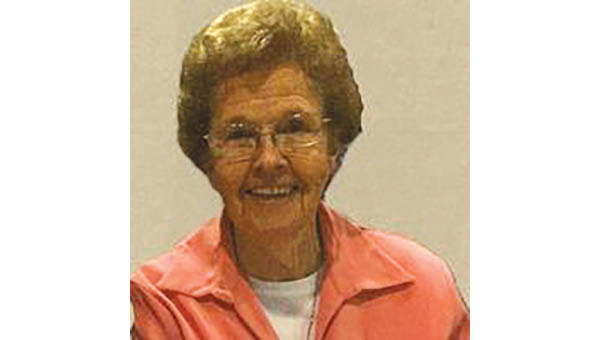Can I know I’m in the place where God wants me?
Published 11:40 am Thursday, November 7, 2024
|
Getting your Trinity Audio player ready...
|
“He makes me to lie down in green pastures; He leads me beside the still waters” (Psalm 23:2).
If we follow the Lord beside still waters, “We won’t fall into rushing waters,” says T.J., age 6.
Did you know that sheep have died of thirst standing beside rushing waters? They won’t drink unless the water is calm.
Trending
“I think it means to take some time off and talk to God,” says Marcus, 8. “God loves us, and we drink from him because he is the still water.”
Many of us can’t remember the last time we quieted our souls and spirits to drink from God’s still waters. The rushing waters of modern life leave us dry, restless and unsatisfied.
“‘He leads me beside still waters’ could mean he brings peace if you put your trust in him,” says Haleigh, 9.
Jesus said, “If anyone thirsts, let him come to Me and drink. He who believes in Me, as the Scripture has said, out of his heart will flow rivers of living water” (John 7:37b-38). “To drink” in a spiritual sense means “to believe” or “to receive.”
Finding water, still or rushing, in the arid Judean hills and valleys was no small task. Water came from dew, springs or streams, and deep wells. Only a skillful shepherd could lead his flock to calm, unpolluted waters in a country where it usually doesn’t rain for nine months of the year.
“By following God, we will find our green pastures,” says Colton, 9. “Only God knows what our still waters are. We must obey God to find these places.”
Trending
Idyllic images of Scotland and New Zealand come to mind when most people read “He makes me to lie down in green pastures.” It’s easy to forget that the Judean hills of which the Psalmist wrote were rocky and dry.
“Green pastures did not happen by chance,” writes author Phillip Keller, whose book on Psalm 23 has sold more than 1 million copies. “Green pastures were the product of tremendous labor, time and skill in land use.”
Yet, green pastures are essential, Keller writes, when “lambs are maturing and the ewes need green, succulent feed for a heavy milk flow, there is no substitute for good pasturage.”
“Lambs like to lie down in green pastures, not bad, brown pastures,” says Mary, 10. “So that means he takes care of us and wants the best for us.”
Hungry sheep are constantly on their feet looking for more food. Their gnawing hunger won’t let them rest. Nothing is so satisfying to a shepherd as to see his flock at rest after their fill of plentiful, green grass and shrubs from a spring pasture. With good pasture and care, lambs can gain 100 pounds within 100 days after birth.
God promised Israel’s patriarchs a land flowing with “milk and honey.” To nomadic shepherds, this imagery represented the peak production time of spring and summer. Sheep grazed in luxuriant pastures while bees made honey from wild flowers and goats produced rich milk for their offspring and owners.
Television advertisers are always promising us more, but the reality is that “more” is often less fulfilling. Try turning off the TV and meditating upon God’s Word to discover God’s provision of milk and honey.
Think about this: God wants you to rest in his provision.
Memorize this truth: “He makes me to lie down in green pastures; He leads me beside the still waters” (Psalm 23:2).
Ask this question: Are you resting in God’s provision?
(Kids Talk About God columns feature kids’ answers and Bible answers to some of life’s biggest questions. These short newspaper columns are perfect for family devotionals or Bible lessons.






